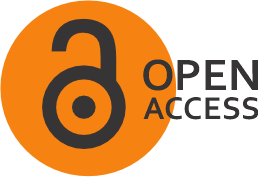Barriers to Parental Engagement: Perspectives from Parents and Teachers in Primary Schools in Rwanda

Published online: 18 Jun 2025
Abstract
Purpose: This study looks at the barriers to parental involvement in education from the views of parents and teachers in five primary schools in Matimba, Nyagatare, Rwanda. It highlights the importance of strong family-school partnerships to improve student success.
Research Methodology / Design / Approach: The study used a mixed method, gathering data through surveys, interviews, and group discussions with parents and teachers.
Findings: Key challenges include lack of awareness about the importance of involvement, cultural differences, and poor communication between schools and families. Parents feel uneasy about the school environment and unsure how to support their children, while teachers face time and resource limits. Both groups agree on the barriers but see their impact differently.
Originality / Value: This research offers important insights into parental involvement in Matimba. It stresses the need for better communication, community support, and inclusive school policies to boost parental engagement. The study calls for cooperation between parents and teachers and suggests ways to improve involvement in education.
References
1. Anderson, K. J., & Minke, K. M. (2007). Parent Involvement in Education: Toward an Understanding of Parents' Decision Making. The Journal of Educational Research, 100(5), 311-323. DOI: https://doi.org/10.3200/JOER.100.5.311-323
2. Bourdieu, P. (2011). The forms of capital. (1986). Cultural theory: An anthology , 1 (81-93), 949.
3. Bronfenbrenner, U. (2013). Ecology of the Family as a Context for Human Development: Research Perspectives. Adolescents and Their Families, 1-20
4. Christenson, S., & Sheridan, S. M. (Eds.). (2001). Schools and families: Creating essential connections for learning. Guilford Press.
5. Corbin, J., & Strauss, A. (2015). Basics of Qualitative Research: Techniques and Procedures for Developing Grounded Theory (4th Ed.). Sage Publications
6. Dauber, S. L., & Epstein, J. L. (1993). Parents’ attitudes and practices of involvement in inner-city elementary and middle schools. Families and schools in a pluralistic society, 53, 71.
7. Drake, D. (2000) Parents and Families as partners in education processes. Collaboration for the success of students in Public schools. ERS Spectrum, 18 (2), 34-39.
8. DuFour, R., & Marzano, R. J. (2011). Leaders of learning: How district, school, and classroom leaders improve student achievement. Solution Tree Press.
9. Epstein, J. L. 2018. School, Family, and Community Partnerships: Preparing Educators and Improving Schools. New York, NY, USA: Taylor & Francis DOI: https://doi.org/10.4324/9780429494673
10. Fallesen, P., & Gähler, M. (2020). Family type and parents’ time with children: Longitudinal evidence for Denmark. Acta sociologica, 63(4), 361-380. DOI: https://doi.org/10.1177/0001699319868522
11. Fan, X., & Chen, M. (2001). Parental involvement and students' academic achievement: A meta-analysis. Educational psychology review, 13, 1-22. DOI: https://doi.org/10.1023/A:1009048817385
12. Goodall, J and Harris, A (2008) ‘Do parents know they matter? Engaging all parents in learning’, Educational Research, 50: 3, 277-289 doi;10.1080/013188002309424 DOI: https://doi.org/10.1080/00131880802309424
13. Goodall, J. 2021. “Scaffolding Homework for Mastery: Engaging Parents.” Educational Review 73 (6): 669–689. https://doi.org/10.1080/00131911.2019.1695106. DOI: https://doi.org/10.1080/00131911.2019.1695106
14. Hill, N. E., and Tyson, D. F., (2009). Parental Involvement in Middle School: A Meta-Analytic Assessment of the Strategies That Promote Achievement, Developmental Psychology, (45)3,740–763, DOI:10.1037/a0015362.
15. Hornby, G., & Lafaele, R. (2011). Barriers to parental involvement in education: An explanatory model. Educational Review, 63(1), 37–52. https://doi.org/10.1080/00131911.2010.488049 DOI: https://doi.org/10.1080/00131911.2010.488049
16. Niyibizi, E., et al (2018). Assessment in a Rwandan higher education institution: A quest for aligned assessment to promote socio-economic transformation. Assessment and Evaluation in Higher Education, 43(7), 1166–1182. https://doi.org/10.1080/02602938.2018.1436688 DOI: https://doi.org/10.1080/02602938.2018.1436688
17. Nyemba, F., and Chitiyo, R. A., (2018). An Examination of Parental Involvement Practices in Their Children‟s Schooling by Zimbabwean Immigrant Mothers in Cincinnati, Ohio, Diaspora, Indigenous, and Minority Education, 12(3), 124-138, DOI: 10.1080/15595692.2017.1408585 DOI: https://doi.org/10.1080/15595692.2017.1408585
18. Orell, M., and P. Pihlaja. 2020. “Cooperation Between Home and School in the Finnish Core Curriculum 2014.” Nordic Studies in Education 40 (2): 107–128. https://doi.org/10.23865/nse.v40.2224. DOI: https://doi.org/10.23865/nse.v40.2224
19. Redding, C., & Taksier, K. A. (2025). Breaking Bad/Good? Patterns and Correlates of Public School Teachers’ Multiple Jobholding. American Educational Research Journal, 00028312251316256.. DOI: https://doi.org/10.3102/00028312251316256
20. Rieber, R. W., & Robinson, D. K. (2004). Perception and Its Development in Childhood. In R. W. Rieber & D. K. Robinson (Eds.), The Essential Vygotsky (pp. 81-96). Boston, MA:Springer. https://doi.org/10.1007/978-0- 387-30600-1_5
21. Sheldon, S. B. (2007). The Family Engagement Partnership. Johns Hopkins University.
22. Sheldon, S.B (2002) Parents’ school network and beliefs as predictors of parents’ involvement. The Elementary School Journal, 102, 301-306. DOI: https://doi.org/10.1086/499705
23. Sheppard, A. (2009). School attendance and attainment: poor attendee’s perceptions of schoolwork and parental involvement in their education. British Journal of Special Education, 36(2), 104-111. Retrieved February 15, 2025. DOI: https://doi.org/10.1111/j.1467-8578.2009.00413.x
24. Smith, A. K., & Wohlstetter, P. (2001). Reform through school networks: A new kind of authority and accountability. Educational policy, 15(4), 499-519. DOI: https://doi.org/10.1177/0895904801015004001
25. Tyson, D. F. (2009). Parental involvement in middle school: a meta-analytic assessment of the strategies that promote achievement. Developmental psychology, 45(3), 740. DOI: https://doi.org/10.1037/a0015362
26. Watson, G. (2012). Understanding parental involvement in American public education. International Journal of Humanities and Social Science, 2(19), 41–50
27. Wilder, S. 2014. “Effects of Parental Involvement on Academic Achievement: A Meta-Synthesis.” Educational Review 66 (3): 377–397. https://doi.org/10.1080/00131911.2013.780009. DOI: https://doi.org/10.1080/00131911.2013.780009
28. Zedan, R. F. (2011). Parent Involvement according to Education Level, Socio-Economic Situation, and Number of Family Members. The Journal of Educational Enquiry, 11(1).
License
Copyright (c) 2025 The Author(s). Published by Borneo Novelty Publishing

This work is licensed under a Creative Commons Attribution 4.0 International License.
Permission is granted subject to the terms of the License under which the work was published. Permission will be required if your reuse is not covered by the terms of the License.

